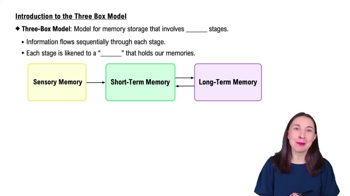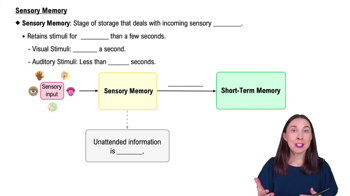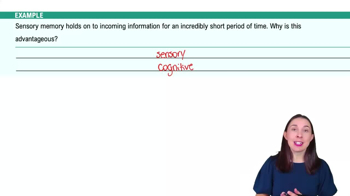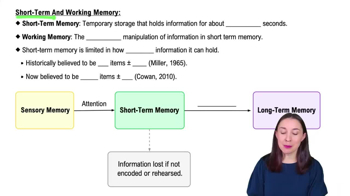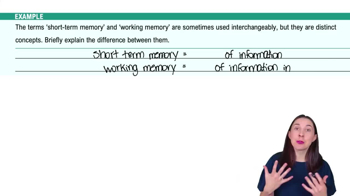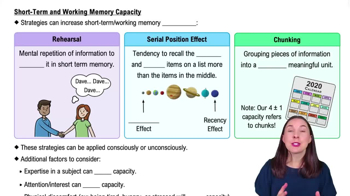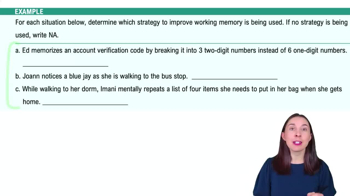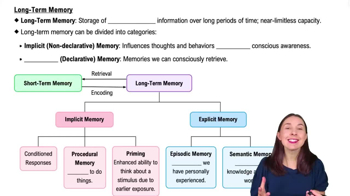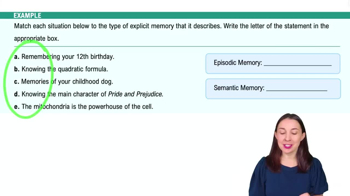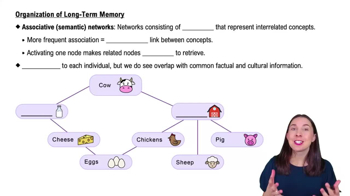Table of contents
- 1. Introduction to Psychology1h 43m
- 2. Psychology Research2h 20m
- 3. Biological Psychology2h 41m
- 4. Sensation and Perception28m
- 5. Consciousness and Sleep32m
- 6. Learning41m
- 7. Memory34m
- 8. Cognition37m
- 9. Emotion and Motivation35m
- 10. Developmental Psychology33m
- 11. Personality48m
- 12. Social Psychology41m
- 13. Stress and Health41m
- 14. Psychological Disorders44m
- 15. Treatment47m
7. Memory
Storage - The Three Box Model of Memory
Struggling with Psychology?
Join thousands of students who trust us to help them ace their exams!Watch the first videoMultiple Choice
Which of the following terms are matched correctly?
A
Implicit memory: unconscious.
B
Semantic memory: unconscious.
C
Episodic memory: unconscious.
D
Nondeclarative memory: conscious.
 Verified step by step guidance
Verified step by step guidance1
Understand the definitions of each type of memory: Implicit memory, Semantic memory, Episodic memory, and Nondeclarative memory.
Implicit memory refers to memories that are not consciously recalled, such as skills and tasks. It is indeed unconscious.
Semantic memory involves the recall of general facts and knowledge about the world. It is typically considered conscious.
Episodic memory is the recall of personal experiences and specific events, which is also conscious.
Nondeclarative memory, which includes implicit memory, is generally unconscious, as it involves skills and conditioned responses.

 1:22m
1:22mWatch next
Master Introduction to the Three Box Model with a bite sized video explanation from Hannah Gordils
Start learningRelated Videos
Related Practice

